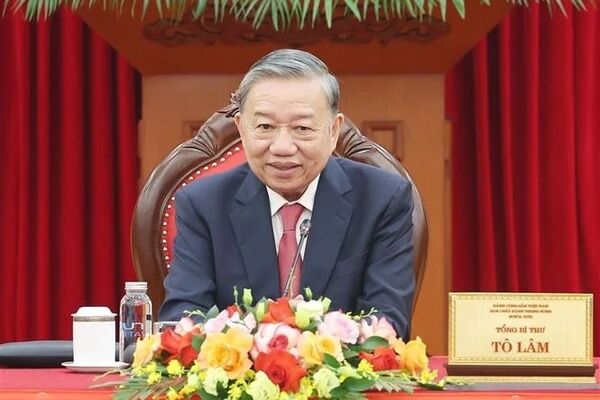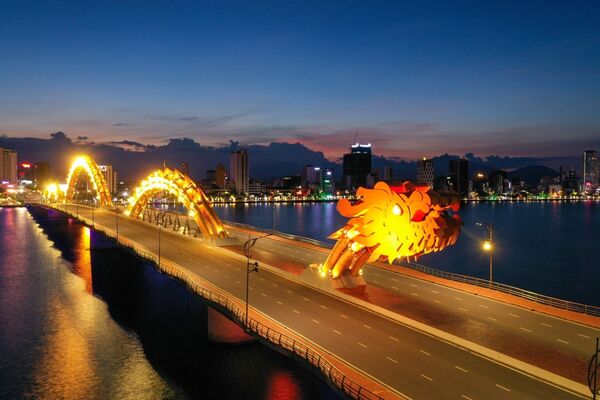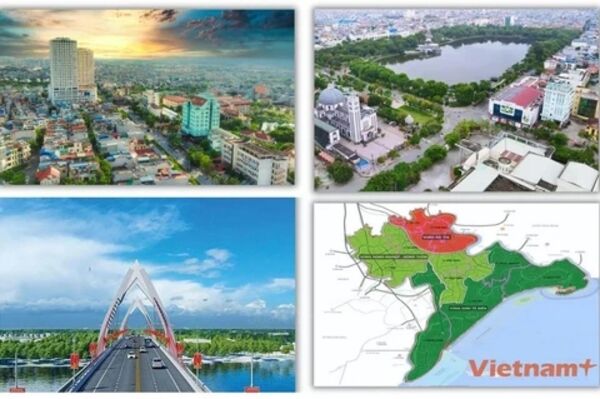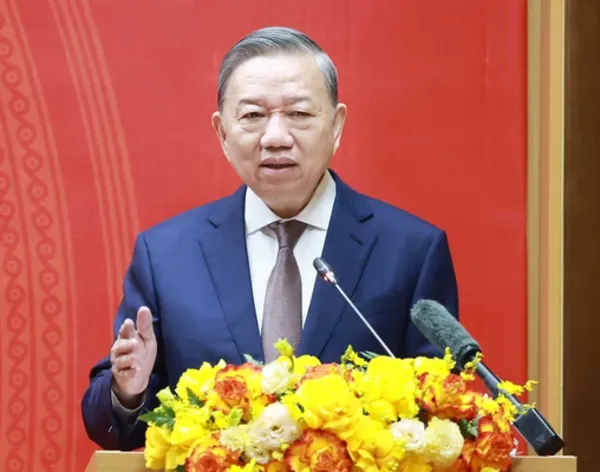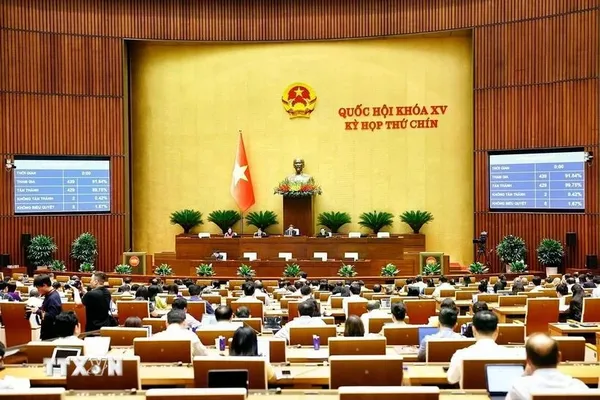 |
| Processing administrative procedures at the public service centre of Dong Da commune in Hanoi (Photo: VNA) |
Hanoi (VNA) – The Government has issued Decree No. 177/2025/ND-CP, amending and supplementing various decrees related to international agreements, aiming to address several key issues arising from the operations of the two-tier local administration model and the restructuring of government organisational structures in the field of international cooperation.
The decree provides specific guidance on how to manage existing international agreements that have been impacted by the reorganisation of state administrative bodies or changes to administrative boundaries.
This includes agreements signed before July 1, 2025, on behalf of district-level People’s Committees; ministerial departments or directorate-level agencies; provincial-level government bodies; departments under provincial authorities; border commune-level People’s Committees; multiple agencies or organisations acting jointly.
Under the new rules, provincial-level People’s Committees are designated as responsible for inheriting international agreements previously signed by district-level People’s Committees prior to the reorganisation deadline on July 1.
Specifically, provincial authorities will assume the functions, responsibilities, and powers of the agencies that originally proposed and implemented these agreements. They are also tasked with updating the administrative titles and designations in inherited agreements, in line with the changes resulting from the administrative restructuring.
Provincial-level People’s Committee chairpersons now hold the authority to decide on amending, supplementing, terminating, withdrawing from, or temporarily suspending the inherited international agreements; initiate the signing of new international agreements on behalf of the provincial-level People’s Committee to replace inherited ones, if deemed necessary and upon mutual agreement with foreign partners; and take appropriate measures to protect Vietnam’s rights and interests if the terms of an inherited agreement are breached.
The decree also defines the duties of agencies that have taken over the functions and powers of provincial-level State bodies following the restructuring process, including reviewing existing agreements that may be affected by administrative reorganisation, particularly with regard to changes in the rights and obligations of the Vietnamese signatory, and communicating with foreign partners to discuss and agree on necessary amendments, including changes in agency names and other affected provisions./.
